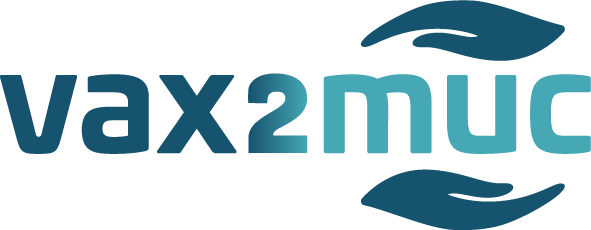Meet Vax2Muc young scientists: Nicole O'Sullivan
The Vax2Muc consortium brings together ten partners, including five universities, three research organisations and two SMEs. From them, a group of accomplished scientists with a wide breadth of knowledge and expertise have come together to search for next-generation vaccines. In the "Meet Vax2Muc young scientists" series, we introduce some of the bright minds working on the project, focusing on early-career academics.
On the occasion of the International Day of Women and Girls in Science, we spoke with Nicole O’Sullivan, a PhD student at Trinity College Dublin (TCD). While working on her bachelor’s degree at TCD, she cultivated her interest in molecular immunology and vaccinology. Her current position brought her to the Lavelle Lab at the School of Biochemistry and Immunology, where her work contributes to the Vax2Muc research.
We asked her about her current work and experiences as a young woman active in this field of research.
You are working on your PhD as part of the Vax2Muc project. Could you tell us a bit about your work and how it fits into the wider research on this project?
Our lab focuses on elucidating vaccine adjuvant mechanisms of action and optimising vaccine adjuvant platforms for use in injectable and mucosal vaccines against infections and cancer. I am working on investigating different vaccine adjuvants and routes of vaccination to identify promising vaccination approaches for optimising tissue-resident immunity in the gastrointestinal (GI) tract. This fits into Vax2Muc’s wider research on alternative vaccination strategies to the lead candidate for inducing GI mucosal immunity, which could be harnessed for use in vaccines against H. pylori and other GI pathogens.
Nicole O’Sullivan presenting at the Vax2Muc progress meeting in Lisbon
Where do you see the importance of Vax2Muc research?
There have been rapid advancements with injectable vaccines in recent years, however, progress in the field of mucosal vaccination is inherently slower due to the enormous challenges associated with mucosal vaccine development. These include the limited number of licenced effective mucosal adjuvants and vaccine delivery systems, overcoming tolerance induction in the GI tract and the lack of standard approaches for monitoring mucosal vaccine efficacy. Vax2Muc aims to directly address these challenges, while also defining correlates of immunity and protection. Ultimately, this research will aid the rational design of novel mucosal vaccines both within the Vax2Muc project and beyond. With a greater focus than ever on mucosal vaccine development since the COVID-19 pandemic, it’s truly an exciting time for a project like Vax2Muc to be taking place.
Vax2Muc consortium consists of partners from throughout Europe who specialise in vaccine research and development. What has been your experience working with these teams?
I am delighted to be a part of this consortium and as a young scientist, I feel privileged that I get the opportunity to collaborate with and learn from international experts in the vaccine and mucosal immunology fields. In 2024, I was awarded an EFIS-Immunology Letters Short-Term Fellowship to visit Professor Markus Gerhard’s Lab at the Technical University of Munich, where I learned new techniques that are central to Vax2Muc’s research. This experience was hugely valuable in terms of gaining knowledge and research experience. Additionally, it allowed me to connect with other young scientists in the consortium, which I think will help us to make a meaningful contribution to the project.
Nicole O’Sullivan (second from the right) during the visit to the Technical University in Munich
Today is International Day of Women and Girls in Science. To this day, gender equality has not been achieved in scientific fields, and it is harder for women to become scientists. Have you encountered barriers in pursuing this career path?
Luckily, I haven’t yet encountered barriers in pursuing this career path. In fact, during my time at TCD, I’ve always had great support and been given the same opportunities as my male peers. Also, I’m lucky to have strong women role models in my life who have inspired me to fully embrace the opportunities I have had thus far to grow and excel in my field. However, I’m aware that many barriers exist for women pursuing a career in science. For example, it can be harder for women to achieve a healthy work-home balance and secure research grants and leadership/senior roles. To achieve gender equality in science, we must continuously strive to foster a supportive and inclusive work environment for women.
“It can be harder for women to achieve a healthy work-home balance and secure research grants and leadership/senior roles. To achieve gender equality in science, we must continuously strive to foster a supportive and inclusive work environment for women.”
Do you have advice or a message for girls interested in science?
If the scientific field that you are interested in is typically male dominated, don’t let this stop you from pursuing it. Some of most recent groundbreaking discoveries in science were made by women. For example, Emmanuelle Charpentier and Jennifer Doudna received the Nobel Prize in Chemistry for developing CRISPR and Katalin Karikó received the 2022 Breakthrough Prize in Life Sciences for her work on modified mRNA-based technology, which paved the way for the COVID-19 vaccines. There are many brilliant, inspiring women in science, however, we still need more. It’s true that science can be very challenging and demanding at times, but it’s also incredibly exciting and rewarding. So, if you are interested in science, just go for it!
“If the scientific field that you are interested in is typically male dominated, don’t let this stop you from pursuing it. There are many brilliant, inspiring women in science, however, we still need more.”
This interview is part of a series Meet Vax2Muc young scientists. You can read the first article in the series – an interview with Cora Mibus – here.



